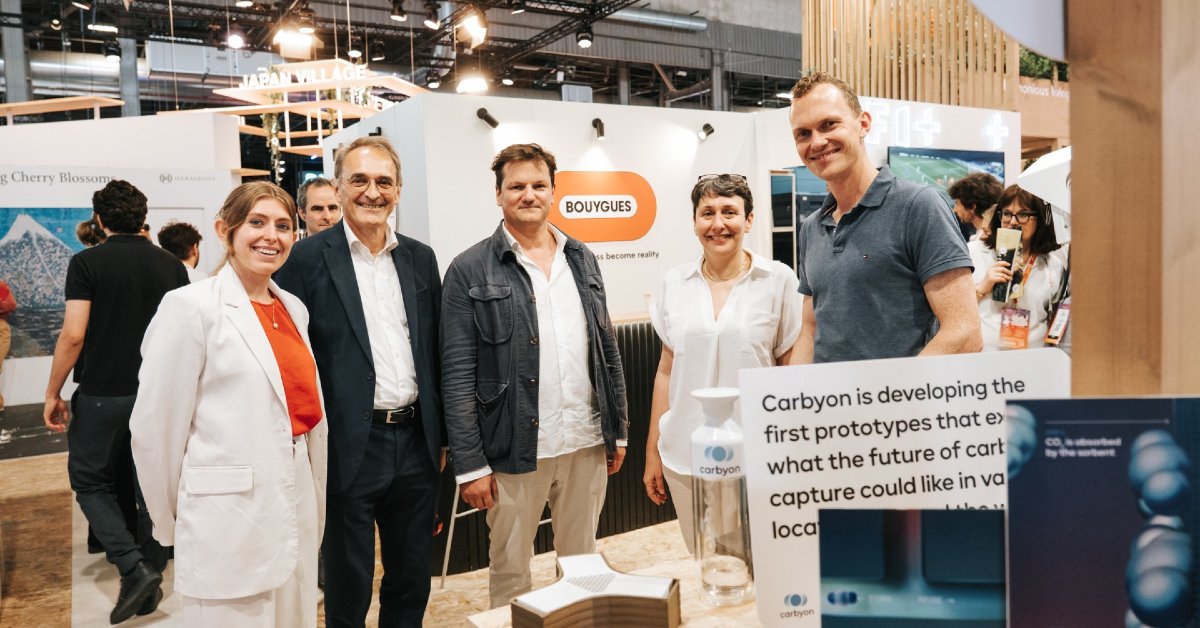Taastrup, Denmark-based ATLANT 3D, a company building an advanced atomic-scale manufacturing platform, announced that it has secured a $15M (approximately €13.7M) Series A+ funding round led by West Hill Capital.
Based out of London, West Hill is a leading UK venture capital firm that provides institutional, corporate, and private investors with the opportunity to invest in pioneering technology businesses.
“Our continued investment in ATLANT 3D across both the A and A+ rounds reflects our deep confidence in their transformative technology and their ability to redefine microfabrication,” says Alan Richards, Partner and Co-Founder of West Hill Capital.
“The team has an unwavering commitment to disruptive innovation and strategic execution, and we believe ATLANT 3D is uniquely positioned to capture significant market opportunities in the semiconductor and advanced manufacturing sectors,” adds Richards.
Fund utilisation
The Danish company will use the funds to accelerate its global expansion and innovation network, enabling it to scale its Direct Atomic Layer Processing (DALP) technology across key markets.
“We are focusing on strengthening our presence in Europe, North America, and Asia while expanding into high-growth regions such as India, the UAE, and Brazil. These markets present significant opportunities in semiconductors, advanced manufacturing, and space applications, where our technology can drive faster prototyping, localised production, and next-generation material development,” says Dr. Maksym Plakhotnyuk, CEO of ATLANT 3D to Silicon Canals.
ATLANT 3D’s growth strategy focuses on building a strong network of channel partners in India, the UAE, and South America to expand market reach and promote the adoption of their Nanofabricator platforms.
The company seeks strategic partners, distributors, and collaborators to deploy its advanced atomic-scale manufacturing technology in sectors like semiconductor research, aerospace, and industrial applications.
Since its Series A funding round, ATLANT 3D has launched the NANOFABRICATOR LITE and developed a prototype of the NANOFABRICATOR FLOW.
The NANOFABRICATOR LITE is a flexible system that uses DALP technology to speed up materials research, device development, and prototyping.
The University of Vermont was the first to acquire this system, which is a significant achievement for the company.
ATLANT 3D has also formed partnerships with over 50 industrial and research organisations, including major semiconductor companies like STMicroelectronics and Sony, as well as several Fortune 500 companies.
Direct Atomic Layer Processing explained
Founded by Dr. Maksym Plakhotnyuk, ATLANT 3D builds materials and devices, atom by atom, through its direct atomic layer processing (DALP) technology, which places precise amounts of materials exactly where needed.
ATLANT 3D’s Direct Atomic Layer Processing (DALP) transforms micro- and nanofabrication by allowing materials to be deposited directly, without masks, and in a single step.
By replacing traditional multi-step fabrication with direct atomic-scale manufacturing, this approach eliminates process complexity while reducing material waste by 90 per cent.
DALP is both scalable and efficient, making it perfect for quick prototyping as well as large-scale manufacturing, all without expensive cleanroom facilities.
It can create custom microstructures on different substrates, which is beneficial for advanced electronics, space applications, and new materials.
Additionally, DALP uses less chemicals and water, making it a more sustainable choice compared to traditional semiconductor manufacturing and paving the way for future on-demand production at the atomic level.
Benefits of DALP over traditional methods
Typically, Atomic-scale manufacturing faces challenges like precision, scalability, and waste from traditional methods, which are slow for rapid prototyping and localized production.
ATLANT 3D’s Direct Atomic Layer Processing (DALP) addresses these issues by enabling direct, maskless, and selective deposition in one step, reducing material waste, energy use, and supply chain reliance.
DALP supports on-demand, decentralised production, connecting lab innovation to large-scale manufacturing.
Unlike conventional Atomic Layer Deposition (ALD), which uses precursor gases in a sealed chamber, DALP delivers precursors directly through a nozzle for localised deposition. This approach significantly cuts material use, making the process more efficient and sustainable.
Opportunities in the semiconductor and advanced manufacturing sectors
“One of the most exciting opportunities ATLANT 3D sees in the semiconductor and advanced manufacturing sectors is advanced packaging, where heterogeneous integration, high-density interconnects, and 3D stacking are driving innovation,” says Plakhotnyuk
As traditional transistor scaling nears its limits, advanced packaging is crucial for enhancing the performance and efficiency of next-generation semiconductors. However, current manufacturing methods are complex and face challenges in scalability, cost, and material compatibility.
ATLANT 3D’s Direct Atomic Layer Processing® (DALP) offers a breakthrough solution by enabling atomic-scale, selective material deposition directly onto specific areas, eliminating the need for masks and multiple processing steps.
This capability allows for the precise creation of connections, protective layers, and barrier coatings, which improves the reliability and thermal performance of devices.
By making it easier to manufacture redistribution layers (RDLs) and connections, DALP speeds up the development of chipset-based designs and modern semiconductor packaging. This helps the industry achieve better performance, energy efficiency, and flexibility in design.
Shaping the future of industries: Here’s how
ATLANT 3D aims to accelerate the transition from lab-scale innovation to industrial-scale fabrication by revolutionizing microfabrication with Direct Atomic Layer Processing (DALP).
“Our technology simplifies and decentralizes fabrication, enabling localized, on-demand production while drastically reducing reliance on global supply chains and expensive cleanroom infrastructure,” he adds.
By enabling maskless, advanced manufacturing at the atomic scale, DALP eliminates excessive material waste, reduces energy consumption, and supports more sustainable production methods for industries like aerospace, automotive, and AI-driven electronics.
“This approach allows for faster prototyping, rapid iteration, and scalable manufacturing, ensuring that breakthroughs in research can be seamlessly translated into real-world applications. ATLANT 3D is paving the way for a more agile, sustainable, and resilient semiconductor and advanced manufacturing ecosystem that is less dependent on traditional supply chain constraints,” he concludes.










01
From telecom veteran to Dutch Startup Visa success: The Jignesh Dave story